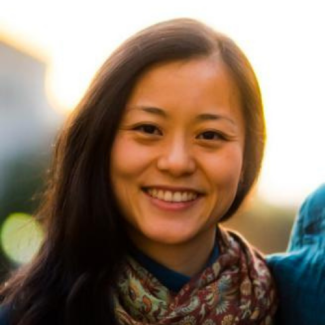
Grace Wu is an Assistant Professor in the Environmental Studies Program at UC Santa Barbara. Before joining UCSB, Grace was a Smith Conservation Fellow at The Nature Conservancy and the National Center for Ecological Analysis and Synthesis. She was also a UC President’s Postdoctoral Fellow at the John Muir Institute of the Environment at UC Davis. She was trained in systems thinking and interdisciplinary approaches in the Energy and Resources Group at UC Berkeley.
Research
Grace is interested in the dynamics and drivers of land use change, climate change mitigation, and advancing our ability to plan for sustainable, multi-use landscapes that protect biodiversity and advance climate goals. She uses spatial science approaches to identify and understand the co-benefits and trade-offs between climate solutions and habitat conservation. Her current main research areas are (1) sustainable spatial planning of low carbon energy systems; and (2) designing policy, management, and technology pathways to sustainable land systems.
Spatial planning of low-carbon transitions
Her recent work is focused on understanding the role and impacts of land-based climate change mitigation strategies like renewable energy and transmission infrastructure expansion to achieve ambitious net zero climate targets in the United States. The rapid transition to low-carbon energy systems is paramount in the fight against climate change, and renewable energy is an integral component of this transition. However, renewable energy development could have significant land use requirements and impacts, and land conflicts could in turn stymie progress towards this low-carbon future. Grace works closely with science and policy teams at The Nature Conservancy to assess whether and how renewable energy infrastructure can be scaled up without negatively impacting areas of high conservation value. Grace’s prior work examining these issues for California have led to changes in state-level energy planning that better integrate land use and conservation considerations. Open source tools encourage the uptake of new approaches that help streamline sustainable energy and land use planning. Grace co-founded the Multi-criteria Analysis for Planning Renewable Energy (MapRE) initiative (http://mapre.lbl.gov) and developed the RE Zoning GIS tool to quickly and easily identify renewable energy development areas using multiple siting criteria in any region. Grace is involved in ongoing work that advances the MapRE framework in the Southern Africa region. The RE Zoning tool has been used in the analysis underpinning California’s integrated resource planning process and has been applied by teams at the World Bank in several countries around the world.
Sustainable land use pathways
There are inherent trade-offs in land use decisions, and achieving consensus or compromise among diverse stakeholders requires a framework for quantifying these trade-offs and identifying synergistic solutions. Working in partnership with the FABLE (Food, Agriculture, Biodiversity, Land Use, and Energy) consortium, Grace is working with collaborators on the US FABLE team to develop a land use planning framework for the US that is capable of assessing the impact and relative value of land intensive climate solutions like bioenergy and reforestation in comparison to other societal changes like shifts towards more sustainable diets or reduction in food waste.
Education
- Ph.D., Energy and Resources, University of California, Berkeley
- M.S., Energy and Resources, University of California, Berkeley
- M.Phil., Zoology, University of Cambridge
- B.A., Biology, Pomona College
Courses Taught
- ENV S 25
- ENV S 145
- ENV S 154